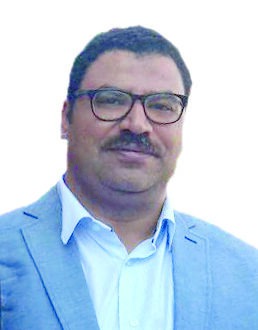Amid conflicts, economic and geopolitical challenges, the Third Belt and Road Forum for International Co-operation struck an optimistic note, offering a platform for co-operation to build a more just and equitable world.
The forum, which was held in Beijing on October 18-19, brought together representatives from more than 130 countries, including at least 20 heads of state and government.
In his keynote speech, Chinese President Xi Jinping promised foreign companies greater access to China’s huge market and more than $100billion in new financing for other developing economies.
The Belt and Road Initiative (BRI), which was proposed by Xi ten years ago, has already driven the development and growth of infrastructure in several countries.
Xi summarised the spirit of the BRI, indicating that it is about co-operation, based on the principle of “planning together, building together, and benefiting together”. He said that the BRI transcends differences between civilisations, cultures, social systems, and stages of development, and that it has opened up a new path for exchanges among countries and established a new framework for international co-operation.
However, even with such aims on the agenda, there are many challenges to overcome. In his speech to the forum, UN Secretary-General António Guterres referred to the infrastructure crisis, which comes as “people are facing a cauldron of challenges across our efforts to advance peace, sustainable development, and human rights”.
Guterres elaborated that billions of people in the developing world still lack access to basics such as water and sanitation, electricity, schools, hospitals, and modern roads, bridges, tunnels, and harbours. He urged leaders to “turn the infrastructure emergency into the infrastructure opportunity.”
Guterres hailed the BRI’s support for the Sustainable Development Goals (SDGs) and the Green Silk Road initiative, aimed at putting BRI projects and investments in harmony with nature.
He said that the scale, number, and scope of BRI projects “can literally change landscapes – economies, energy systems, transportation, buildings, and entire industries.” He added that this must be done in ways that preserve our children’s future.
Overall, the Third Belt and Road Forum was a positive event that reaffirmed the commitment of the international community to the BRI and its potential to promote global economic growth and development. The forum also identified a number of new priorities and initiatives for the BRI, which will help to ensure that it continues to be a relevant and beneficial initiative for all stakeholders.
Some of these priorities include promoting green and sustainable development, enhancing digital connectivity, supporting post-pandemic economic recovery, and strengthening people-to-people ties.
However, one of the most important messages sent through the forum is the notion that the BRI is not just about China. It is a global initiative that is open to all countries, and China is committed to working with its partners to ensure that the BRI benefits all stakeholders.
China’s leadership was also keen to highlight that the BRI is about more than just infrastructure. It is about promoting comprehensive development, including economic growth, social progress, and environmental protection.
President Xi reiterated his notion of the BRI’s function as building a community of shared future for humanity. He concluded his remarks by saying, “Let us advance modernisation of all countries, build an open, inclusive and interconnected world for common development, and jointly build a community with a shared future for mankind.”






Discussion about this post